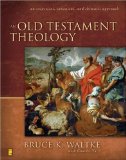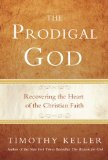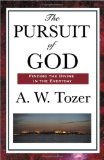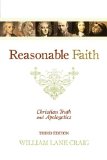I have a great appreciation for Carl Trueman. For those who don’t know, Trueman is a theologian and historian who teaches at Westminster Theological Seminary. He also blogs regularly at Reformation21. He is one of the wittiest and most insightful writers out there, one from whom I’ve learned much.
Part of what I like about Trueman is that he is unabashedly Reformed. It’s not that I agree with his positions, but I admire the man for the fact that he has strong convictions, doesn’t mind stating them strongly and, it seems, he appreciates when others do the same. I like people who know where they stand and hold to it firmly, as well as grant you the right to do the same.
Then there I times I shake my head. Like yesterday, when I was reading this post on an unfortunate incident regarding a church suing a former member. The context of that post isn’t my concern here (since I agree with Trueman, save for the following points). But in it he makes a statement I’ve heard/read from him previously: “The church is marked by two things: the word and the sacraments.”
This is, of course, a classic Reformed position, so he’s not stating anything new here. And since I went to a Reformed seminary, I’m well aware of the arguments in favor of it. I don’t necessarily disagree with “the word” part of the statement, though Trueman and I might not see eye-to-eye on how it’s carried out. Most Reformed folks I know would stress the preaching of the word- one guy standing up in the front and the congregation listening, with very little interaction otherwise. That, to me, is not necessarily bad, in fact, it’s mostly a good thing, but it’s not exactly what the NT writers had in mind. There was some of that style of preaching, to be sure, but there also seemed to be a bit more interaction happening, too.
Anyway, I find his statement regarding the centrality of the ‘sacraments’ (and the term he uses next, ‘means of grace’) to be the most problematic. This is the mark of the church? I’m not sure if a person who has never read the NT before would come away with these two points as the marks of the church. What about love (Jn 13:35)? What about obeying the commands of Jesus (Jn 14:23-24)? What about living lives of faith? It seems to me that Paul thought faith set the church apart from others.
What about believers helping fellow believers financially, practically, etc? In fact, that shows up more often in the NT than the Lord’s Supper does. Why doesn’t that make the Top 2 Marks of the Church?
Or, perhaps even more egregious, how about the fact that the very presence of God who was present at the beginning of creation now dwells in the hearts of his people individually and among his people corporately? You mean to tell me that someone read the NT and came away thinking that the Holy Spirit is not the mark of the church? God himself dwells among us! After all, it is the Spirit’s presence in our corporate worship that ought to make unbelievers “fall down and worship God, exclaiming ‘God is really among you!'” (1 Cor 14:25). If that isn’t something that marks off the church, I don’t know what is.
I want to be clear. I’m not down on the so-called ‘sacraments,’ or as I state here, my inner Baptist prefers to use the term ‘ordinance.’ In fact, I’d argue baptism and the Lord’s Supper are undervalued in the modern church. I’m a proponent of weekly observance of the Lord’s Supper (though I’d stress more ‘supper’ than a cracker and juice). I have very strong feelings about baptism, not just the mode but also its importance.
But what I think Reformed theology has done in general, and Trueman in particular, is give a good thing too high a place in the life of the church. It is, in my opinion, very difficult to get from the NT that the two primary marks of the church are the word and sacraments. The first, as I said, is defensible, depending on how we define it. The second is a harder case to make.
Read Full Post »
 A Call to Spiritual Reformation: Priorities from Paul and His Prayers
A Call to Spiritual Reformation: Priorities from Paul and His Prayers Paul, the Spirit and the People of God
Paul, the Spirit and the People of God From Jerusalem to Irian Jaya
From Jerusalem to Irian Jaya Ah, the Holy Spirit. It’s amazing to me how little knowledge there is of the Holy Spirit. You’d think there would be more emphasis and biblical teaching on him, being part of the Trinity (i.e., God) and all. Yet, most churches and Christians know very little of what the Bible teaches on the Holy Spirit (I’m not pointing fingers outward, by the way, the circles I run in are just as guilty, more on that to come). In the words of J I Packer, in chapter 6 of Knowing God, the Holy Spirit is “divine yet ignored.”
Ah, the Holy Spirit. It’s amazing to me how little knowledge there is of the Holy Spirit. You’d think there would be more emphasis and biblical teaching on him, being part of the Trinity (i.e., God) and all. Yet, most churches and Christians know very little of what the Bible teaches on the Holy Spirit (I’m not pointing fingers outward, by the way, the circles I run in are just as guilty, more on that to come). In the words of J I Packer, in chapter 6 of Knowing God, the Holy Spirit is “divine yet ignored.”









